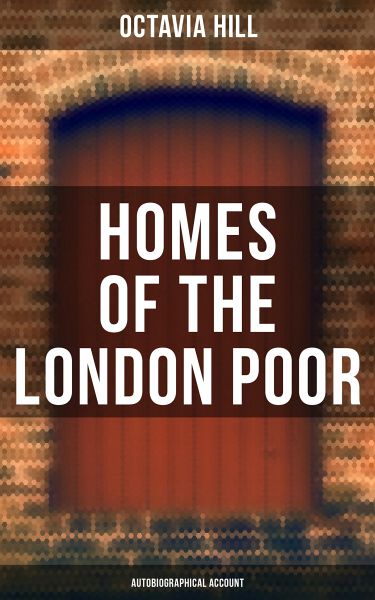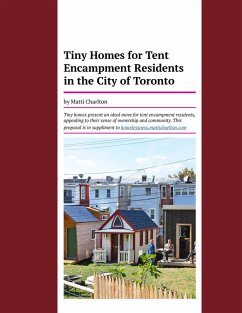
Homes of the London Poor (Autobiographical Account) (eBook, ePUB)
An Inspiring Autobiographical Account by a 19th-Century Social Reformer

PAYBACK Punkte
0 °P sammeln!
In 'Homes of the London Poor' by Octavia Hill, readers are given a firsthand account of the living conditions of the impoverished in Victorian London. Hill's writing style is direct and poignant, providing a stark portrayal of the struggles faced by the lower class. The book serves as both a social commentary and a call to action, shedding light on the need for improved housing and living conditions in urban areas. Its literary context lies within the Victorian era, where social issues such as poverty and class disparity were prevalent themes in literature. Hill's autobiographical approach add...
In 'Homes of the London Poor' by Octavia Hill, readers are given a firsthand account of the living conditions of the impoverished in Victorian London. Hill's writing style is direct and poignant, providing a stark portrayal of the struggles faced by the lower class. The book serves as both a social commentary and a call to action, shedding light on the need for improved housing and living conditions in urban areas. Its literary context lies within the Victorian era, where social issues such as poverty and class disparity were prevalent themes in literature. Hill's autobiographical approach adds a sense of authenticity to the narrative, drawing readers into the harsh reality of slum life. Octavia Hill, a social reformer and housing advocate, was inspired to write 'Homes of the London Poor' based on her own experiences working with the impoverished. Her dedication to social reform and her commitment to improving the lives of the underprivileged are evident in the pages of this book. Through her writing, Hill seeks to raise awareness and prompt action to address the injustices faced by the poor in London. I highly recommend 'Homes of the London Poor' to readers interested in Victorian social history, urban studies, and the works of influential female authors. This book offers valuable insights into the challenges of poverty and the role of individuals in advocating for social change.
Dieser Download kann aus rechtlichen Gründen nur mit Rechnungsadresse in A, B, BG, CY, CZ, D, DK, EW, E, FIN, F, GR, H, IRL, I, LT, L, LR, M, NL, PL, P, R, S, SLO, SK ausgeliefert werden.













